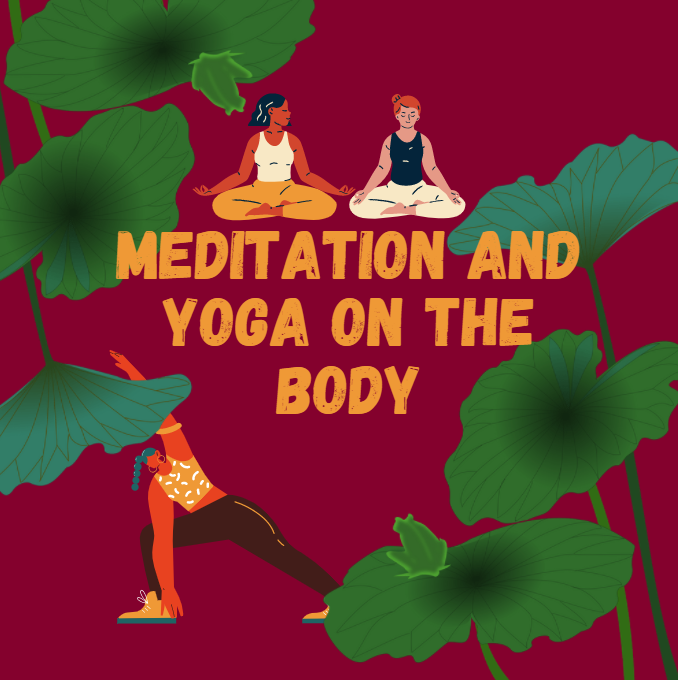Meditation & Yoga On The Body
Meditation and yoga are widely renowned for their cerebral benefits, but these ancient practices positively impact the physical body as well. When the mind is calm, stability is welcomed into the body, in turn cultivating health.
Cortisol is a stress hormone that releases inflammatory chemicals called cytokines. When one is experiencing stress their levels of cortisol rise drastically, and the side effects are unfortunate. Sleep becomes disrupted, vulnerability to depression and anxiety increases, blood pressure rises, and the body enters an overall state of cloudy fatigue.
Without guidance it can be difficult to leave this cycle of stress, as it is similar to climbing out of spiraling quicksand. But a simple shift in perspective, granted through the practices of meditation and yoga, can provide relief.
Meditation is the act of existing solely in the present. To not think of before and what to come, but all that is right now. When quieting the mind, calm realizations bubble to the surface. Frequent meditators experience higher levels of gratitude, concentration, and according to UCLA’s department of neuroscience, younger brains. As meditation rewires negative thought patterns, levels of cortisol will reduce, therefore reversing brain aging, improving the immune system and strengthening an individual’s wellbeing.
Yoga is a form of meditation that incorporates flexibility and balance. Through specific poses, the practitioner can build cardiovascular and muscular strength- this can be especially beneficial to CHS athletes. Yoga originated in India, and spread through monks who looked to improve well-being. There are six branches of yoga; Hatha, Raja, Karma, Bhakti, Jnana, and Tantra. These styles can be loosely interpreted to fit a person’s specific needs. Hatha would be best for one looking to target physical strength, as it focuses on the physical techniques of flexibility and endurance. For someone who wants a more meditative experience, the styles Karma and Raja may be appealing, as they are contemplative explorations of self. For the dedicated student, the inquiry-based Jnana is popular among scholars. For athletes, and anyone in search of wellness, meditation and yoga can be a great practice.
Hello there! Our goal is to provide relavent, engaging journalism for readers of all ages. Your donation will support the student journalists of the Wolfpacket at Claremont High School, and will allow us to purchase equipment, print our monthly issues, and enter in journalism competitions. We appreciate your consideration!

Frida Garcia is a senior at Claremont High School and the Head Features Editor of the Wolfpacket. Besides designing for the features spread, Frida’s...









